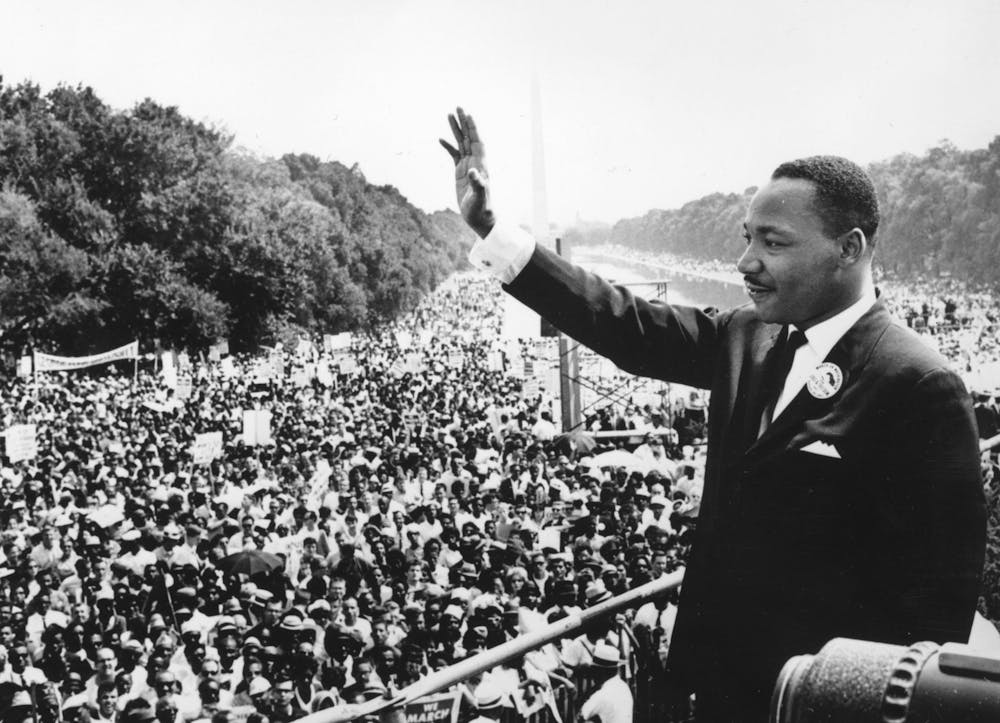On Monday, during a celebratory dinner with friends, I overheard a patron nearby wish their waiter, “Happy MLK Day!”
My entire table, a group of four Black women, took a pause — we had never heard anyone frame the holiday in that way. Typically that phrasing is reserved for Valentine’s Day or New Year's. We also noted the irony that the patron, who perhaps had the day off from work, was saying this to their server, who obviously did not.
The quick interaction served as some brief and diverting dinner chat, but also reminded me of the way Martin Luther King Jr. Day has become normalized as just a day off from work. We need to think critically about honoring King’s legacy and acknowledge his radical anti-capitalist politics, which would change the nature of the holiday itself.
Many of us across the University enjoyed an extended weekend on Jan. 17. For me, the day off meant not having to teach and enjoying the ability to sleep in a bit. With the snow left over from Sunday, it felt fitting to spend the day at home. This, of course, was not a universal experience.
Maintenance workers salted roads and shoveled snow to avoid the dangerous accumulation of it on the streets and sidewalks. The garbage valet service offered by my apartment was still up and running. The businesses around the Italian eatery we went to all had their lights on — including a grocery store, fast-food chain restaurants and a gym.
MLK Day was designed to commemorate the legacy of civil rights activist Martin Luther King Jr. Since the 1980s, our country has taken the third Monday of every January to reflect on his life and politics. Banks close their doors. The U.S. Postal Service doesn’t deliver. The New York Stock Exchange ceases operations. Most schools from K-12 to college don’t hold classes. Libraries and city, state and federal offices are closed.
This does not apply to private or small businesses who, in some cases, hope to catch business from those with a day free of obligation. As a federal holiday, it only explicitly applies to federal workers, a majority of whom are white. A 2019 survey by Bloomberg Law found that only 45 percent of American employers close for the holiday. Private employers can go about business as usual — and they do not have to pay overtime.
This contrasts deeply with King’s politics that, in addition to emphasizing a union of the races, questioned a capitalistic system and a better distribution of wealth.
Much of the mainstream narrative around King focuses on his beliefs on desegregation and voting. With the passage of major legislation on those two social issues, it’s comforting to tell his story as one of a charismatic minister who spent his life fighting for his people — a fight he won and died for (emphasis on “died for” and not “was assassinated for”).




